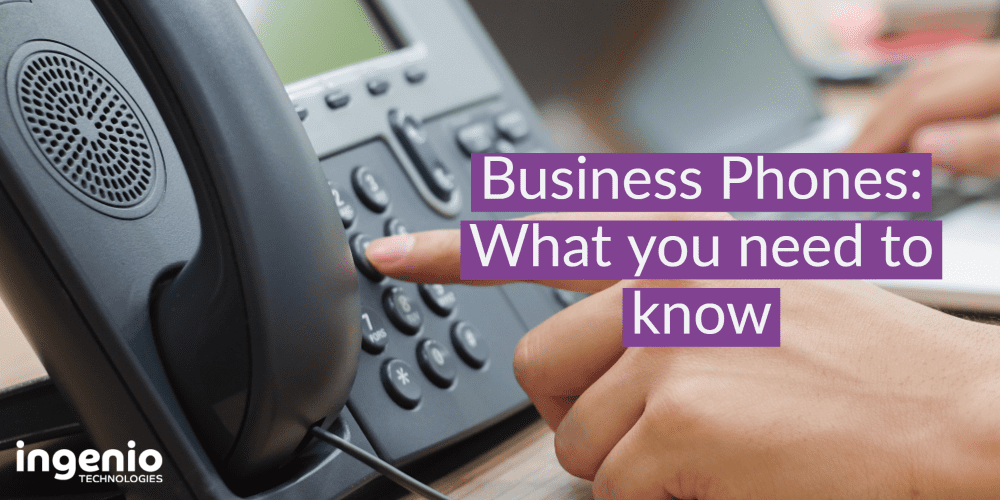Good communication is the key to success in any industry. Your company’s mobile devices can help you maintain contact with colleagues, reach out for new business opportunities and make your presence known among potential clients or customers too!
Are you considering adopting a new phone system for your business? In this article, we define the different types of phone systems, their differences in life cycles, technology options in the past and the present. Read on to learn more.
Different phone systems
Telephones have come a long way from when they first came about in 1876; modern phone systems have virtually unlimited reach, are automated, and are cheaper than ever to acquire. Today’s businesses still use telephones to connect with various stakeholders such as customers, investors, and suppliers, to service their numerous needs, and in most cases, VoIP (Voice over Internet Protocol) phones are the answer.
VoIP
VoIP is a system of hardware and software that uses the internet instead of traditional phone lines. click here to read more about VoIP in a previous blog we wrote ‘what does VoIP stand for?’
The hardware (phone system, cables, call recording equipment etc.) and software (one or more applications that run the system) can be either on-site (also known as on-premise) or hosted by a third party:
On-site – Hardware and software are physically housed within the premises of the company.
Hosted VoIP – Some of the hardware, like desk phones, can be found within the premises. But everything else is hosted online. Hosted VoIP providers provide a managed service for their clients.
Life cycles: On-site vs. hosted
With hardware, it doesn’t matter whether it’s on-site or privately hosted, it is affected by the wear and tear stemming from daily use. Barring any accidents or physical damage, hardware should last several years but it will get outdated very quickly as technology advances. Parts become difficult to acquire and upgrading may not be possible without replacing the whole phone system.
On the other hand, whilst hosted VoIP software requires regular updates, it’s a fast and easy way to bring new features and benefits that help your business. This is completely managed by your cloud voice provider and included in your monthly costs.
Did you know that traditional landline phones are becoming obsolete in 2025? The shift to internet voice calls will become the norm for everyone.
Technology today vs. before
In the past, hardware and software were built to last. Today, they’re built to adapt and change, thanks to cloud technology.
The effect of this shift on hardware and software is dramatic – most hardware components are very similar, with replacements and upgrades coming every 5–8 years on average.
Cloud software is faster, easier, and cheaper to upgrade. Critical updates are applied immediately and without your intervention, you never have to replace your equipment (unless you break a headset or phone).
As your business moves forward, your phone system should be agile and fast, and should integrate smoothly with the other systems in your business, such as email or management software.
Be a step ahead
Nowadays, it’s not longevity that’s important; it’s staying ahead of the curve.
Downtime results in loss of potential sales and, essentially, wasted money. If your phone service is difficult to use and unreliable? It may be time to think about switching from a traditional landline phone to VoIP, especially considering that landline phones are being obsolete in 2025.
If you would like to discuss more about phone systems and what would work best for your business, call our experts today on 01273 806211 or email hello@ingeniotech.co.uk


